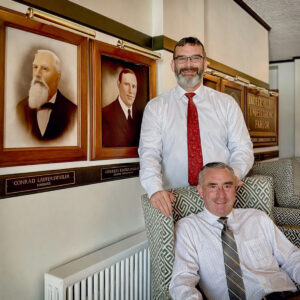Religious freedom must not be taken for granted
Q: What have you learned about the FBI’s bias towards American Catholics?
A: From my top spot on the Senate Judiciary Committee, I’m pushing to get answers from the FBI about its efforts during the Biden administration to tie certain Americans of Catholic faith to violent extremist views. New information I recently released showed the anti-Catholic Richmond memo was widely distributed to more than 1,000 FBI employees across the country during the Biden administration.
What’s more, the newly released records showed the targeting of Catholics based on biased sources included more than just a single memo. Records reveal the FBI produced many written products containing anti-Catholic terminology that hinged on information from the radical far-left Southern Poverty Law Center.
This contradicts former FBI Director Christopher Wray’s misleading testimony to my questioning about these operations that have undermined the public trust in our institutions of government. I’m working to get to the bottom of the Richmond memo, including the FBI’s efforts to skirt congressional oversight. The American people deserve answers to help restore confidence that federal law enforcement agencies administer justice without fear or favor. Targeting Americans based on their religious faith crosses a constitutional guardrail enshrined in the Bill of Rights.
Q: Is religious freedom in America at risk?
A: For more than two centuries, the First Amendment protects freedom of religion. Specifically, the Establishment Clause prevents the government from establishing a state religion; and the Free Exercise Clause protects the right to practice religion freely. Unfortunately, the recent murders outside the Israeli embassy in Washington, D.C. and the attack on the Jewish community in Boulder aren’t isolated incidents. They expose a grave and present danger for people of religious faith, particularly antisemitic extremism. Since the brutal attack in Israel on Oct. 7, 2023, antisemitism is on the rise in the United States and around the world. During his first month back in the White House, President Trump signed an executive order to combat antisemitism. The Department of Justice formed a task force in February and zeroed in on incidents taking place on college campuses. I convened a Senate Judiciary Committee hearing in March to strongly rebuke the stunning acts of antisemitism happening on campuses and elsewhere.
During his first administration, President Trump made religious freedom a top foreign policy to stand against religious intolerance, persecution and violence around the world. Closer to home, President Trump last month created the Religious Liberty Commission to foster appreciation for our founding principles of religious freedom, identify emerging threats and protect the free exercise of religion. The president appointed advisory board members representing religious, legal and lay leaders to produce a comprehensive report on the foundations of religious liberty in America and its impact on society leading up to the 250th anniversary of American independence on July 4, 2026. The commission also will discuss Supreme Court rulings on religious liberty and delve into the meaning of separation of church and state.
U.S. Sen. Charles Grassley, a Republican, represents Iowa.

